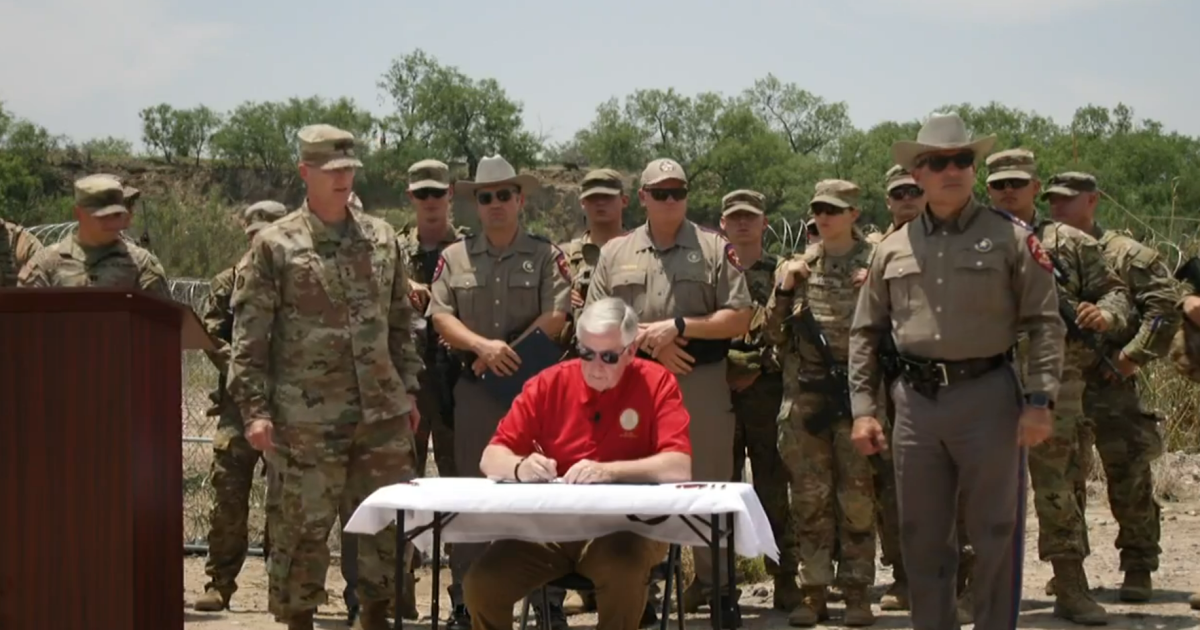Politics
Missouri abortion ballot item may not hurt GOP candidates
St. Louis resident Desiree White has witnessed Missouri’s unpredictable voting patterns.White, a volunteer signature gatherer for the group circulating a petition to overturn the state’s abortion ban, said she’s seeing ample evidence that Missouri isn’t too Republican to put abortion rights protections in the state constitution.“Missourians don’t like it when you take their freedoms away. Absolutely not,” White said. “Whatever it is, we don’t like that.”Missouri abortion rights supporters are hoping to join voters in GOP-leaning states like Ohio, Kentucky and Kansas who have supported legalization through statewide ballot initiatives. Polling shows that a significant slice of Republican voters would back the initiative that would legalize abortion up to what’s known as fetal viability — a bloc that may be necessary to pass the initiative in a state Donald Trump won by double digits.In some respects, Missouri could be a barometer of the down-ballot impact of abortion rights ballot initiatives. While backlash to abortion bans could matter in more competitive states like Arizona or Florida, it may not cause electoral doom for Missouri Republicans.“People know where they stand on abortion rights,” said Kyle Kondik of the University of Virginia-based Larry Sabato’s Crystal Ball. “We know from polling and from results in other states that there are a fair number of Republican voters who will vote Republican in other elections, but they don’t agree with their party on abortion rights.”
Eric Lee
/
St. Louis Public RadioBryan Pyle on Thursday at his home in Kirkwood. Pyle is conservative in his political views but is against a ban on abortion.
Polling shows split voting dynamicBryan Pyle may be a good example of the split voting phenomenon that’s defined Missouri politics for a number of election cycles.The Kirkwood resident signed the Missourians for Constitutional Freedom abortion rights initiative, even though he classifies himself as a conservative on a number of issues.“It is kind of sad to see anyone, whether they’re Republican or Democrat or whatever they may be, to push their opinion on someone else,” Pyle said. “I’ve always been this way.”Pyle voted for Republican candidates in 2016 and 2020 — and may do so again in 2024. But he said he’s going to vote for the abortion proposal, which would allow the procedure up to a point where a medical professional determines a fetus could survive outside of the womb.“We don’t need to have people take the rights from other people because they don’t like it,” Pyle said. “And we should all have the right to make our own decisions.”A February poll from St. Louis University and YouGov shows that Pyle is part of a noticeable trend. That survey found that 24% of GOP respondents will vote for the abortion legalization initiative. And while that’s much less than the 71% of Democrats who said they would vote for it, St. Louis University political science professor Steven Rogers said it shows that voting behavior on abortion rights doesn’t fit into neat partisan boxes.
Brian Munoz
/
St. Louis Public RadioEnola Proctor, 75, of Olivette, signs a petition for a Missouri constitutional amendment that would legalize abortion up until fetal viability on Feb. 6 at The Pageant in St. Louis.
That same SLU/YouGov poll shows a Republican would easily win the governor’s race 52% to 38%.If Missourians approve an abortion rights amendment and back Republican candidates, it would follow a trend in which the GOP dominated elected offices while voters approved Democratic-backed efforts to boost the minimum wage, expand Medicaid and institute campaign donation limits.Some of those ballot initiatives may have benefited from underfunded or nonexistent opposition campaigns. But Kondik said this type of result showcases the consequences of states like Missouri with a robust initiative petition process.“The best bet that Republicans have in the state is that they get the voters to put their ‘red jerseys’ on and look at the abortion rights issue as a kind of partisan issue,” Kondik said. “But again, my guess is there’ll be a significant number of voters who don’t do that. And you can imagine it passing even in the midst of an otherwise Republican environment.”
Eric Lee
/
St. Louis Public RadioMissouri Secretary of State Jay Ashcroft, a candidate for governor, speaks during a campaign event on April 18 at the Ethical Society of Police in Fountain Park. Ashcroft, like the other GOP candidates for governor, is opposed to abortion rights.
Republican opinion mixedSome Republican candidates seeking to make it to the November ballot aren’t overly worried that an abortion ballot initiative will hurt their chances of winning.Lt. Gov. Mike Kehoe, a Republican gubernatorial candidate, said it’s possible that the prospect of undoing decades of abortion restrictions could mobilize socially conservative voters — especially in rural counties and right-leaning suburbs where Republicans have gained recent ground.“Even if there’s Missourians who say there might be some medical exceptions or exceptions for rape or incest, I think if they knew how far it allows it to go — it would give them pause,” Kehoe said.
Dominick Williams
/
Special to St. Louis Public RadioU.S. Sen. Josh Hawley, R-Missouri, speaks with potential voters on Feb. 17 in Kansas City. Hawley is opposed to abortion rights with the exception of rape, incest or life of the mother.
And while some Republicans have expressed alarm that the abortion ballot item could go before voters, U.S. Sen. Josh Hawley said he welcomes Missourians deciding for themselves on the issue.“My whole adult life, I said Roe is wrong, because the Constitution gives us the choice of the people,” Hawley said. “My view is, you gotta let the people decide. So if the people want to vote on this, we should vote on it. We can vote on it every year, if they want to.”Secretary of State Jay Ashcroft, who is seeking the Republican nomination for governor, said it’s possible that abortion rights could affect some state legislative contests — especially in suburban districts that are more evenly divided between the two parties.“Maybe there’s certain suburban districts, those kind of 50/50 House districts or one or two state Senate districts, where maybe that changes the electorate enough to change who gets elected,” Ashcroft said.
Eric Lee
/
St. Louis Public RadioMissouri state Rep. Ashley Aune, D-Kansas City, on Jan. 25 in Jefferson City. Aune has been a critic of efforts to make it more difficult to amend the state’s constitution.
Consequences for ballot initiative changesUnless Ashcroft expedites the signature verification process, Missourians will vote on the abortion initiative in November if abortion rights backers turn in enough signatures by May 5.One question is whether there could be a separate ballot initiative that would make it harder to amend the state’s constitution. If that passes in August, it’s possible that the November abortion initiative may need to pass in a majority of congressional districts in order to make it into the constitution.“Folks are rightfully looking for Republicans in the legislature to lead on this issue and protect the constitution,” said Sen. Bill Eigel, who is also running for governor.Making it harder to amend the constitution failed in states including Ohio and Arkansas.“The voters are not going to be fooled by this effort,” said state Rep. Ashley Aune, D-Kansas City. “What they’re trying to do is to essentially end majority rule.”Senate Minority Leader John Rizzo, D-Independence, said he’s tried to warn his Republican colleagues that a successful effort to gut the initiative petition process could backfire on the GOP.“That’s the thing that allows them to go around the legislature,” Rizzo said. “And if they can’t do that, and they can’t go around the legislature, they’re going to start changing the legislature.”
Politics
Metro Transit’s Taulby Roach commits to hearing feedback about Call-A-Ride
Metro Transit is soliciting feedback on a proposed tightening of its Call-A-Ride reservations policy. The policy would change the booking window for a ride from three to five days in advance to next-day reservations only.Members of the advocacy group STL Metropolitan Alliance for Reliable Transit, which is convened by Paraquad, say shorter reservation windows would make existing service gaps worse and reduce riders’ autonomy.“I just recently got an appointment scheduled for three or four weeks out in the future. What if I make that appointment, and then I have to call the day before to set up my ride and I discover I can’t get a ride?” Jeanette Mott Oxford, public policy and advocacy manager at Paraquad, told St. Louis on the Air. “That can be just nerve-wracking.”Taulby Roach, president and CEO of Bi-State Development, said the policy could have a positive effect on customers by decreasing spikes in phone demand on Fridays and reducing trip cancellations.“What we’re trying to do is be as efficient as possible with what our current capabilities are,” Roach said. “We are limited by our employment, [and] we’re doing our best to increase our employment.”In April, the agency received over 150 comments about the proposed change and plans to hold community listening sessions around accessible transit between now and July.“As a publicly supported agency, we have an obligation to lean in and listen as best we can. And I’m committed to that,” Roach said.In a report card released earlier this year, advocates gave Metro Transit near failing grades on ADA compliance and customer service.Seyoon Choi, who uses Metro services daily, wants the transportation agency to more meaningfully engage with people with disabilities and include them in decision-making.“As someone who is not able to drive due to my blindness, I think being able to walk a few blocks and board that MetroLink and expect reliability is something … that needs to happen in a very time-sensitive, urgent way to know that Metro is listening,” Choi said.For more on Metro St. Louis’ proposed change to Call-A-Ride and the realities disabled public transit riders face, listen to St. Louis on the Air on Apple Podcasts, Spotify or by clicking the play button below.
Metro Transit weighs policy change
Related Event What: Metro Transit hiring eventWhen: 10 a.m. – 2 p.m. May 11Where: 5000 Manchester Ave., St. Louis, MO 63110“St. Louis on the Air” brings you the stories of St. Louis and the people who live, work and create in our region. The show is produced by Ulaa Kuziez, Miya Norfleet, Emily Woodbury, Danny Wicentowski, Elaine Cha and Alex Heuer. Roshae Hemmings is our production assistant. The audio engineer is Aaron Doer
Politics
Parson signs bill in Texas paying for Missouri troops at border

Missouri Gov. Mike Parson signed into law on Wednesday the bill that back funds the deployment of about 200 Missouri National Guard troops and 22 State Highway Patrol officers to the Texas-Mexico border.“I think the important takeaway for folks back home in Missouri is to realize the battle that we’re fighting down here at the border is keeping it from happening in our own borders, in our own state,” Parson said at a press conference near Eagle Pass, Texas.State Rep. Peter Merideth, D-St. Louis, criticized the effort.“This is a campaign stunt for a lot of people about the national fight happening over the border,” Merideth said. “What I think is frustrating is, while it’s just politics, it has real consequences.”The $2.2 million supplemental budget bill passed both legislative chambers in Jefferson City with broad bipartisan support earlier this spring — despite some Democrats’ objection to Parson’s decision to send the troops and officers.Initially, the Republican governor issued the executive order in February, saying Missouri would be the 14th state to join Operation Lone Star. The initiative of Texas Gov. Greg Abbot seeks to curb the flow of illicit drugs and migrants from entering the country illegally. Abbot and the federal government have been fighting over the legality of his operation.The Missouri troops and officers arrived in early March to help local law enforcement with their security patrols, said Parson and Gen. Levon Cumpton, the head of the Missouri National Guard.
Office of the Missouri GovernorMembers of the Missouri National Guard in January 2021 during a COVID-19 vaccination site in Poplar Bluff.
The first half of the state troopers returned home at the end of March, according to the governor’s office. The second half of the troopers served until mid-April.The initial deployment was scheduled to last 90 days but could be extended. Parson did not specify the timeline during Wednesday’s press conference. His office said it will reassess the future of the deployment when the executive order expires in mid-June.Helping the Texas Army National Guard, the Missouri troops have detected and turned back more than 700 undocumented migrants, according to the governor’s office.Parson and many GOP top executives and lawmakers point to the policies of President Joe Biden’s administration as the need for sending troops and officers to the U.S.-Mexico border. They point to statistics that show migrant encounters have reached record highs during Biden’s presidency.The southern border has become an increasingly important issue for many voters, recent polls show. Republicans have made their critique a key 2024 campaign priority.“The one thing I want to share with all Missourians: We are making a difference — without a doubt,” Parson said.But some Democrats in Jefferson City said the governor’s decision to send aid to Texas does not help Missouri.“We’re always talking about making sure we take care of Missourians,” Rep. LaKeySha Bosley, D-St. Louis, said in March when the bill was being considered. “We are not doing that with this bill. We are trying to take care of somebody else’s problem.”Many in the opposing party said they voted for the bill because Parson already made his decision to send the troops and did not need legislative approval to do so. The bill would backfill state funding in case of an emergency in the state, Parson said.But Merideth said that’s unnecessary because lawmakers could call a special session to pass legislation quickly in the event of a disaster like the Joplin tornado in 2011.St. Louis Public Radio statehouse reporter Sarah Kellogg contributed to this report.
Politics
Missouri Senate holds fate of women’s health care bill

A wide-ranging women’s health care bill that stalled in the House for months over concerns about expanding coverage for birth control is a step away from the governor’s desk — though dysfunction in the Senate could derail its chances of becoming law.The bill, an effort by a bipartisan group of five women lawmakers across the House and Senate, would be “a game changer” for women’s health, said state Rep. Melanie Stinnett, a Republican from Springfield.With provisions focused on annual supply birth control, congenital syphilis, mammograms, STI treatment and rape test kits, the legislation is sponsored by Stinnett; state Sen. Elaine Gannon, a DeSoto Republican; State Rep. Tara Peters, a Rolla Republican; State Sen. Tracy McCreery, an Olivette Democrat; and state Rep. Patty Lewis, a Kansas City Democrat.“We need to focus on women’s health, children’s health, babies’ health,” Gannon said. “We have to do whatever we can do to produce healthy people.”Though it got its initial committee hearing in January, the House didn’t pass the bill and send it to the Senate until late April. The delay was caused by a number of Republicans expressing concerns that birth control could be used as an abortifacient, the bill’s sponsors said.Since passing the House with approval from 60 Republicans and 45 Democrats, it has moved quickly in the Senate and was approved unanimously by the chamber’s emerging issues committee on Monday.“This bill was on life support several times as it moved its way forward,” Lewis said. “But no matter what side of the aisle you’re on, it’s politically advantageous to support women’s health care right now.”The sponsors remain hopeful the bill can make it across the finish line before session ends on May 17.But progress in the Senate is stalled as infighting between the Freedom Caucus and Senate Republican leadership has left the chamber with little to show as they run up against a deadline to pass the state budget. Also hanging in limbo is a bill that would make it more difficult to pass citizen-led constitutional amendments, legislation Democrats have staunchly opposed, fearing it could inhibit an abortion rights proposal expected to land on the November ballot.The sponsors of the women’s health care bill argue that unlike other legislation, theirs should not be controversial and thus shouldn’t be a casualty of Senate gridlock.“If the supermajority knew how to govern, they could bulldoze anything through,” Lewis said. “But they are too busy fighting amongst themselves and ultimately playing games with people’s lives.”
Missouri Senate CommunicationsMissouri State Sen. Elaine Gannon speaks on the floor of the Senate in Jefferson City.
Annual supply birth controlPeters said if there’s one thing she’s learned in her freshman term in the House, it’s that all it takes to mount a campaign to kill a bill is the word “abortion.”The legislation, which would allow women on private insurance to pick up an annual supply of contraceptives rather than going to the pharmacy every few months, is already law in 26 states. Studies show this increase in access and continuity can help prevent unintended pregnancy. It does not apply to abortifacients.Stinnett, who has a master’s degree in health care administration and who serves as vice chair of the House Healthcare Reform Committee, said several Republican colleagues had questions about hormonal contraceptives and whether drugs that induce abortions fall under the statute.“At every turn we either had to educate or deflate or talk against what wasn’t true,” Peters said, adding that some lawmakers were spreading inaccurate information that the bill had to do with abortion drugs.After whipping the bill several times, Peters said she ultimately won over the needed support, finally moving the bill out of the House in late April, despite it receiving an initial House committee hearing in January.Only the Missouri Insurance Coalition and America’s Health Insurance Plans and Blue Cross Blue Shield of Kansas City were present to testify in opposition of the birth control policy.A recent survey released by The Right Time, a family planning initiative through the Missouri Family Health Council Inc., showed Missourians overwhelmingly support access to contraceptives,but some fear their lawmakers could pass laws limiting that availability.Of the 1,000 Missourians polled between the ages of 18 and 35, 77% said they believed there should be access to annual supplies of birth control.“I would have to dig pretty deep to find out when the last proactive sexual and reproductive health care legislation of a ‘women’s health type’ passed,” said Mandy Hagseth, the council’s director of policy and external affairs. “So it does not come often and it does not come easy.”Hagseth previously told The Independent that in conversations with women around Missouri, the council learned that access to clinics, lack of consistent transportation and balancing work and children are often barriers to picking up their contraception consistently, which can create gaps in use and increase the chances of an unintended pregnancy.More than 373,000 Missouri women live in contraceptive deserts,which they define as a place where there’s not reasonable access to a full range of contraceptive methods, according to data compiled by Power to Decide. Most are in rural counties.“The Senate has an opportunity to pass a really important, pro-active women’s health bill,” Hagseth said. “At a time that it’s woefully needed sort of generally and politically.”Congenital syphilis testingIn 2022, Missouri recorded 81 congenital syphilis cases — the most in 30 years, the state health department said in an alert distributed earlier this year.From 2017 to 2021, congenital syphilis cases rose 219% across the country; in Missouri, they rose 593%, according to the Centers for Disease Control and Prevention. Between 2012 and 2015, one stillbirth from a congenital syphilis case was reported in Missouri. Since then, there’s been at least one infant death every year, with 18 deaths reported between 2016 and 2022, according to the Missouri Department of Health and Senior Services.Mothers can pass along congenital syphilis in utero at any point in pregnancy. But if caught before the baby passes through the birth canal, the disease is reversible in the womb.For adults, the symptoms, if there are any, can include a rash on the palms of a person’s hands or on the soles of their feet, hair loss, swollen lymph nodes or sores. Often these symptoms go away on their own, even though they are still contagious. If a mother is infected within four weeks of delivering their baby and doesn’t get treatment, the infant has a 40% chance of dying at birth or shortly after, according to the CDC.Right now, only two syphilis tests are required in pregnancy: one in the first trimester and one at birth. The bill would also require a third trimester test for HIV and hepatitis C and hepatitis B, which can cause liver damage in infants.This legislation hopes to address this outbreak by adding additional optional testing for women around 28 weeks of pregnancy during their regularly-scheduled appointment.“Anything we can do to ensure that baby is born healthy, that’s what we need to be doing,” Gannon said.
Tim Bommel
/
Missouri House Tracy McCreery, D-Olivette, speaks on the Missouri House Floor in 2022.
Mammograms, STI treatment and forensic examsMcCreery said after she went in for a mammogram at the start of the year, she received a “weird form letter” that left her thinking she needed additional testing to ensure she didn’t have breast cancer.New federal regulations for mammograms are now at odds with Missouri’s statute, so this bill would update the language given to patients after a cancer screening to be less confusing, as the current language may cause unnecessary concern.“We need to speak in clear, easy to understand terms when we’re communicating with somebody after they’ve had an exam like that,” McCreery said.The bill also hopes to make treatment easier for trichomoniasis, an infection that’s more common in women then men.Under current state statute, if someone is diagnosed with gonorrhea and chlamydia, their doctor is allowed to also treat the patient’s sexual partner in a process called expedited partner therapy. Under this legislation, trichomoniasis would also be added to that list, and it would open the door for syphilis to also be added if federal guidelines change as syphilis rates rise.The final piece of the legislation would smooth out a law passed in 2022 that requires survivors of rape or sexual assault be given the option to ask for a forensic exam.Right now, speciality hospitals without emergency departments are not exempt from the statute, meaning survivors can be taken to health care providers without access to rape test kits. This statute would require that patients initially seen at specialty hospitals be transferred to a hospital with an emergency department equipped to do a forensic exam.This story was originally published in The Missouri Independent, part of the States Newsroom.
-

 Entertainment1 year ago
Entertainment1 year agoSt.Louis Man Sounds Just Like Whitley Hewsten, Plans on Performing At The Shayfitz Arena.
-

 Business1 year ago
Business1 year agoWe Live Here Auténtico! | The Hispanic Chamber | Community and Connection Central
-
Board Bills1 year ago
2022-2023 Board Bill 189 — Public Works and Improvement Program at the Airport
-

 Local News1 year ago
Local News1 year agoVIDEO: St. Louis Visitor Has Meltdown on TikTok Over Gunshots
-

 News1 year ago
News1 year agoTed Lasso-inspired pop-up bar now open in St. Louis
-

 Board Bills1 year ago
Board Bills1 year ago2022-2023 Board Bill 165 — Jefferson Arms Community Improvement District
-
Board Bills1 year ago
2022-2023 Board Bill 183 — Amending Ordinance Number 62885 known as the Capital Improvements Sales Tax
-
Board Bills1 year ago
2022-2023 Board Bill 180 — Right to Counsel for Tenants Facing Eviction


